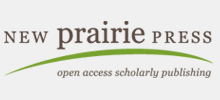About This Journal
All manuscripts received are blind peer reviewed. Because of the clinical focus of the journal, authors are encouraged to address the conceptual methodology underlying the research and to describe the intervention methods employed. Although detailed reviews of literature are accepted, reviewers tend to appreciate manuscripts with a very strong introduction describing the purpose of the study, a well described conceptual framework, concise presentation of findings, and a thorough discussion of results that are applicable to practicing financial therapists, financial counselors, psychologists, marriage and family therapists, and others who regularly work in clinical settings.
Topics of interest to readers and reviewers include:
- Pre- and post-test analyses of counseling and financial therapy methods
- Tests showing the effectiveness of financial education in changing both attitudes and behaviors
- Financial therapy trends
- Regulation of financial therapy
- Ethical issues associated with financial therapy
- Practice management techniques
- Client assessment and management procedures
- Employee counseling and therapy
- Financial therapy research methodological and statistical procedures
- Book reviews and letters
The Journal of Financial Therapy is sponsored by the Financial Therapy Association and currently housed within the Institute of Personal Financial Planning at Kansas State University. The Journal provides a forum for those who are interested in financial therapy with a forum for sharing models, theory, ideas, strategies, and therapy approaches.
Indexed in Scopus, PsychInfo, Cabell's, Google Scholar and DOAJ.

